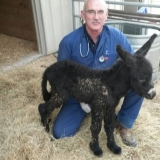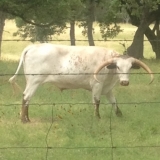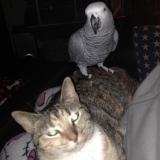Pigeon Fever
The only thing that is constant is change. This also applies, unfortunately, to diseases as well. New diseases occur, old diseases change and spread. One good example of this type of change is a new rabies virus found in Africa. Fortunately, this new virus is confined to Tanzania
Another good example, Pigeon Fever, does for the first time, affect Texans. The name Pigeon Fever confuses many people. It leads people to naturally assume it has something to do with birds or pigeons. It does not. It is called Pigeon Fever because it will most often affect the chest area of a horse and causes dramatic swelling. It creates a “rounded pigeon breast look” hence the name. It can affect other areas but the chest is the most common area affected.
Pigeon Fever was virtually unknown in Texas until the past 18 months or so.. Prior to that while it did occasionally occur, it was considered rare. The bacteria that causes the diseases is identified as Corynebacterium pseudotuberculosis. What is less well understood is the mode of transmission.
What we do know is that drought conditions create a favorable environment for the disease to occur. The bacteria thrives in dry soil. Flies are implicated in the transmission of the disease as well. We have certainly had the dry conditions and the disease has arrived.
The Texas Veterinary Medical Diagnostic Laboratory in College Station said the number of cases increased fourfold from 2010 to 2011. Cases are still currently being reported on an annual basis.
If you notice an unusual swelling on your horse’s chest call your veterinarian immediately. Pigeon Fever responds very favorably to treatment but it definitely needs to be seen and treated, not ignored.
Fly control is important in controlling the disease but it can occur in the best kept barns. Talk with us about fly control methods if you have a fly problem. Unfortunately Pigeon Fever is probably here to stay. So prompt identification and treatment are all that can be done.
So clean your barn, watch your horse for any unusual swelling in the chest area and be glad we don’t live in Africa and have to deal with a new strain of rabies.














